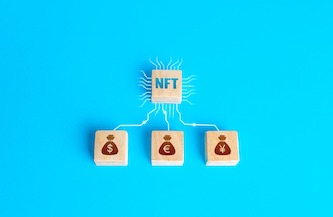A car company in Italy has been fined $6.4 million by the Italian government for falsely claiming that their vehicles were made in Italy when they were actually manufactured in China. DR Automobiles, based in southern Italy, assembles low-cost cars using components produced by Chinese car makers. The company marketed their cars as being Italian-made, but in reality, they were mostly of Chinese origin, with only minor assembly and finishing work done in Italy. The competition regulator stated that this misleading practice coincided with a period of increased sales for the company in the Italian market.
This incident is part of a larger trend in Italy and the European Union (EU) of cracking down on cars produced outside of the trading bloc. Last month, Moroccan-made Fiat Topolinos were seized in Italy because they had Italian flag insignia, leading to the removal of the flags by Fiat’s parent company. Additionally, the EU has threatened to impose import taxes of up to 38% on Chinese electric vehicles, citing them as a threat to the region’s motor industry. China has responded by stating that these tariffs violate international trade rules and are an example of protectionism.
The fine imposed on DR Automobiles highlights the importance of accurate branding and labeling in the automotive industry. Consumers rely on this information to make informed purchasing decisions, and misleading practices can harm both consumers and the reputation of the company. As the global automotive market becomes increasingly competitive, it is crucial for companies to adhere to regulations and be transparent about the origin of their products.
DR Automobiles has stated that it will appeal against the fine, arguing that it never claimed its vehicles were completely made in Italy. The outcome of this appeal will determine whether the company will face further consequences for its misleading marketing practices. In the meantime, this case serves as a reminder for companies to ensure that their branding accurately reflects the true origin of their products, in order to maintain consumer trust and comply with regulations.
Original news source: Firm fined for selling China-made cars as Italian (BBC)
🎧 Listen:
Slow
Normal
Fast
📖 Vocabulary:
| 1 | fined | Penalized with a monetary charge for wrongdoing |
| 2 | claiming | Stating something as a fact, often without proof |
| 3 | manufactured | Produced or made, especially in a factory |
| 4 | components | Parts or elements that make up a larger product |
| 5 | misleading | Giving a false impression or information |
| 6 | regulator | An official who ensures compliance with laws and regulations |
| 7 | coincided | Happened at the same time as something else |
| 8 | cracking down | Taking severe measures to enforce rules or laws |
| 9 | insignia | A symbol or emblem, often indicating origin or affiliation |
| 10 | impose | To establish or apply as a rule or penalty |
| 11 | tariffs | Taxes or duties to be paid on imports or exports |
| 12 | protectionism | Economic policy of restricting imports to protect domestic industries |
| 13 | branding | The process of creating a unique name and image for a product |
| 14 | adhere | To follow or stick to rules or guidelines |
| 15 | transparent | Open and honest, without secrets or deceit |
Group or Classroom Activities
Warm-up Activities:
– News Summary
Instructions: Have students read the article individually or in pairs. Then, ask them to summarize the main points of the article in a brief news summary, focusing on the key information and omitting any unnecessary details. They can present their summaries to the class or write them down and share them with a partner.
– Opinion Poll
Instructions: Divide the class into small groups. Give each group a list of questions related to the article, such as “Do you think the car company should be fined for their misleading marketing practices?” or “Should import taxes be imposed on Chinese electric vehicles?”. Ask the groups to discuss their opinions and come to a consensus on each question. Then, have each group present their opinions to the class and facilitate a class discussion on the different viewpoints.
– Sketch It
Instructions: Provide each student with a piece of paper and a pen or pencil. Ask them to choose a specific scene or concept from the article and sketch it on their paper. They can use symbols, stick figures, or any other visual representation to depict their chosen idea. After a set amount of time, have students share their sketches with a partner or with the whole class, explaining their chosen scene or concept and why they decided to draw it.
– Vocabulary Pictionary
Instructions: Write a list of vocabulary words from the article on the board, such as “misleading,” “origin,” “regulations,” “transparent,” etc. Divide the class into two teams. One person from each team will come to the board and choose a word. They must then draw a visual representation of that word while their team tries to guess what it is. The team that guesses correctly earns a point. Continue until all the words have been guessed or until time runs out. The team with the most points at the end wins.
– Future Predictions
Instructions: Ask students to imagine and discuss the potential consequences of the car company’s misleading marketing practices in the future. Will it impact their sales? Will it damage their reputation? Will it lead to changes in regulations? Divide the class into pairs or small groups and give them time to brainstorm and discuss their predictions. Then, have each group present their predictions to the class and facilitate a discussion on the likelihood and potential outcomes of each scenario.
🤔 Comprehension Questions:
1. What was DR Automobiles fined for by the Italian government?
2. Where were the cars actually manufactured?
3. How did the company market their cars?
4. What was the effect of the misleading marketing practices on the company’s sales?
5. Why were Moroccan-made Fiat Topolinos seized in Italy?
6. What action has the EU threatened to take against Chinese electric vehicles?
7. How does China respond to the EU’s threat of import taxes?
8. Why is accurate branding and labeling important in the automotive industry?
Go to answers ⇩
🎧✍️ Listen and Fill in the Gaps:
A car company in Italy has been fined $6.4 million by the Italian government for falsely claiming that their vehicles were made in Italy when they were actually manufactured in China. DR Automobiles, based in (1)______ Italy, assembles low-cost cars (2)______ components (3)______ by Chinese car makers. The company marketed their cars as being Italian-made, but in reality, they were mostly of Chinese origin, with only (4)______ assembly and finishing work done in Italy. The competition regulator stated that this misleading practice coincided with a period of increased sales for the company in the Italian market.
This incident is part of a larger trend in Italy and the European Union (EU) of cracking down on cars produced outside of the (5)______ bloc. Last month, Moroccan-made Fiat Topolinos were (6)______ in Italy because they had Italian flag insignia, leading to the removal of the flags by Fiat’s (7)______ company. Additionally, the EU has threatened to (8)______ import taxes of up to 38% on Chinese electric vehicles, citing them as a threat to the region’s motor industry. China has responded by stating that these tariffs violate international trade rules and are an example of protectionism.
The fine imposed on DR Automobiles highlights the importance of (9)______ branding and labeling in the (10)______ industry. Consumers rely on this information to make (11)______ purchasing decisions, and misleading practices can harm both consumers and the reputation of the (12)______. As the global automotive market becomes increasingly competitive, it is crucial for companies to adhere to regulations and be transparent about the (13)______ of their products.
DR Automobiles has stated that it will appeal against the fine, arguing that it never claimed its (14)______ were completely made in Italy. The outcome of this appeal will determine whether the company will face further consequences for its misleading marketing practices. In the meantime, this case serves as a (15)______ for companies to ensure that their branding accurately reflects the true origin of their products, in order to maintain consumer (16)______ and comply with regulations.
Go to answers ⇩
💬 Discussion Questions:
Students can ask a partner these questions, or discuss them as a group.
1. What do you think about companies falsely claiming that their products are made in a certain country?
2. How important is it for you to know where a product is made before you purchase it?
3. Do you think companies should face fines for misleading consumers about the origin of their products? Why or why not?
4. Have you ever been deceived by a company’s marketing claims? How did it make you feel?
5. How do you think misleading marketing practices can harm consumers?
6. What steps do you think companies should take to ensure that their branding accurately reflects the origin of their products?
7. How would you feel if you discovered that a product you purchased was not made in the country it claimed to be made in?
8. Do you think consumers have a right to know where a product is made? Why or why not?
9. How do you think misleading marketing practices can harm the reputation of a company?
10. How would you feel if you found out that a company you trusted had been falsely claiming the origin of its products?
11. What do you think about the EU’s threat to impose import taxes on Chinese electric vehicles?
12. Do you think import taxes on Chinese electric vehicles are an example of protectionism? Why or why not?
13. How do you think tariffs on Chinese electric vehicles could impact the global motor industry?
14. What steps do you think the automotive industry should take to ensure accurate branding and labeling?
15. How do you think the outcome of DR Automobiles’ appeal will affect other companies in the automotive industry?
Individual Activities
📖💭 Vocabulary Meanings:
Match each word to its meaning.
Words:
1. fined
2. claiming
3. manufactured
4. components
5. misleading
6. regulator
7. coincided
8. cracking down
9. insignia
10. impose
11. tariffs
12. protectionism
13. branding
14. adhere
15. transparent
Meanings:
(A) Giving a false impression or information
(B) Happened at the same time as something else
(C) Penalized with a monetary charge for wrongdoing
(D) To follow or stick to rules or guidelines
(E) Produced or made, especially in a factory
(F) To establish or apply as a rule or penalty
(G) Economic policy of restricting imports to protect domestic industries
(H) Taking severe measures to enforce rules or laws
(I) Stating something as a fact, often without proof
(J) An official who ensures compliance with laws and regulations
(K) Parts or elements that make up a larger product
(L) A symbol or emblem, often indicating origin or affiliation
(M) Open and honest, without secrets or deceit
(N) Taxes or duties to be paid on imports or exports
(O) The process of creating a unique name and image for a product
Go to answers ⇩
🔡 Multiple Choice Questions:
1. Why was DR Automobiles fined by the Italian government?
(a) They used components produced by Chinese car makers.
(b) They marketed their cars as low-cost.
(c) They falsely claimed their vehicles were made in Italy.
(d) They were based in southern Italy.
2. What was the main origin of DR Automobiles’ vehicles?
(a) China
(b) Italy
(c) Germany
(d) Spain
3. What was the consequence of the misleading marketing practices for DR Automobiles?
(a) Increased sales in the Italian market.
(b) Removal of Italian flag insignia from their vehicles.
(c) Threat of import taxes on Chinese electric vehicles.
(d) A fine of $6.4 million.
4. What is the larger trend in Italy and the EU regarding cars produced outside of the trading bloc?
(a) Imposing import taxes on Chinese electric vehicles.
(b) Cracking down on cars made in China.
(c) Seizing Moroccan-made Fiat Topolinos.
(d) All of the above.
5. How has China responded to the EU’s threat of import taxes on Chinese electric vehicles?
(a) By imposing their own import taxes on EU vehicles.
(b) By increasing production of Chinese electric vehicles.
(c) By offering discounts on Chinese electric vehicles.
(d) By arguing that the tariffs violate international trade rules.
6. Why is accurate branding and labeling important in the automotive industry?
(a) It increases sales in the market.
(b) It helps consumers make informed purchasing decisions.
(c) It protects the reputation of the company.
(d) All of the above.
7. What will determine whether DR Automobiles faces further consequences for its misleading marketing practices?
(a) The removal of Italian flag insignia from their vehicles.
(b) The threat of import taxes on Chinese electric vehicles.
(c) The outcome of their appeal against the fine.
(d) The increased sales in the Italian market.
8. What should companies do to maintain consumer trust and comply with regulations?
(a) Market their cars as low-cost.
(b) Use components produced by Chinese car makers.
(c) Assemble their cars in Italy.
(d) Ensure that their branding accurately reflects the true origin of their products.
Go to answers ⇩
🕵️ True or False Questions:
1. The fine imposed on DR Automobiles underscores the insignificance of accurate branding and labeling in the automotive industry.
2. Only minor assembly and finishing work was done in Italy on the cars.
3. DR Automobiles assembles high-cost cars using components produced by Chinese car makers.
4. DR Automobiles, an Italian car company, has been fined $6.4 million by the Italian government.
5. This misleading practice coincided with a period of increased sales for DR Automobiles in the Italian market.
6. Italy and the EU have been promoting cars produced outside of the trading bloc.
7. The company truthfully claimed that their vehicles were made in Italy, when they were actually manufactured in China.
8. The company marketed their cars as being Italian-made, but they were mostly of Chinese origin.
Go to answers ⇩
📝 Write a Summary:
Write a summary of this news article in two sentences.
Check your writing now with the best free AI for English writing!
Writing Questions:
Answer the following questions. Write as much as you can for each answer.
Check your answers with our free English writing assistant!
1. What was the reason for the $6.4 million fine imposed on DR Automobiles?
2. How did DR Automobiles market their cars to consumers?
3. What is the larger trend in Italy and the EU regarding cars produced outside of the trading bloc?
4. How did China respond to the EU’s threat of imposing import taxes on Chinese electric vehicles?
5. What is the importance of accurate branding and labeling in the automotive industry?
✅ Answers
🤔✅ Comprehension Question Answers:
1. What was DR Automobiles fined for by the Italian government?
DR Automobiles was fined for falsely claiming that their vehicles were made in Italy when they were actually manufactured in China.
2. Where were the cars actually manufactured?
The cars were actually manufactured in China.
3. How did the company market their cars?
The company marketed their cars as being Italian-made.
4. What was the effect of the misleading marketing practices on the company’s sales?
The misleading marketing practices coincided with a period of increased sales for the company in the Italian market.
5. Why were Moroccan-made Fiat Topolinos seized in Italy?
Moroccan-made Fiat Topolinos were seized in Italy because they had Italian flag insignia, which was misleading.
6. What action has the EU threatened to take against Chinese electric vehicles?
The EU has threatened to impose import taxes of up to 38% on Chinese electric vehicles.
7. How does China respond to the EU’s threat of import taxes?
China responds by stating that these tariffs violate international trade rules and are an example of protectionism.
8. Why is accurate branding and labeling important in the automotive industry?
Accurate branding and labeling is important in the automotive industry because consumers rely on this information to make informed purchasing decisions, and misleading practices can harm both consumers and the reputation of the company.
Go back to questions ⇧
🎧✍️✅ Listen and Fill in the Gaps Answers:
(1) southern
(2) using
(3) produced
(4) minor
(5) trading
(6) seized
(7) parent
(8) impose
(9) accurate
(10) automotive
(11) informed
(12) company
(13) origin
(14) vehicles
(15) reminder
(16) trust
Go back to questions ⇧
📖💭✅ Vocabulary Meanings Answers:
1. fined
Answer: (C) Penalized with a monetary charge for wrongdoing
2. claiming
Answer: (I) Stating something as a fact, often without proof
3. manufactured
Answer: (E) Produced or made, especially in a factory
4. components
Answer: (K) Parts or elements that make up a larger product
5. misleading
Answer: (A) Giving a false impression or information
6. regulator
Answer: (J) An official who ensures compliance with laws and regulations
7. coincided
Answer: (B) Happened at the same time as something else
8. cracking down
Answer: (H) Taking severe measures to enforce rules or laws
9. insignia
Answer: (L) A symbol or emblem, often indicating origin or affiliation
10. impose
Answer: (F) To establish or apply as a rule or penalty
11. tariffs
Answer: (N) Taxes or duties to be paid on imports or exports
12. protectionism
Answer: (G) Economic policy of restricting imports to protect domestic industries
13. branding
Answer: (O) The process of creating a unique name and image for a product
14. adhere
Answer: (D) To follow or stick to rules or guidelines
15. transparent
Answer: (M) Open and honest, without secrets or deceit
Go back to questions ⇧
🔡✅ Multiple Choice Answers:
1. Why was DR Automobiles fined by the Italian government?
Answer: (c) They falsely claimed their vehicles were made in Italy.
2. What was the main origin of DR Automobiles’ vehicles?
Answer: (a) China
3. What was the consequence of the misleading marketing practices for DR Automobiles?
Answer: (a) Increased sales in the Italian market.
4. What is the larger trend in Italy and the EU regarding cars produced outside of the trading bloc?
Answer: (b) Cracking down on cars made in China.
5. How has China responded to the EU’s threat of import taxes on Chinese electric vehicles?
Answer: (d) By arguing that the tariffs violate international trade rules.
6. Why is accurate branding and labeling important in the automotive industry?
Answer: (b) It helps consumers make informed purchasing decisions.
7. What will determine whether DR Automobiles faces further consequences for its misleading marketing practices?
Answer: (c) The outcome of their appeal against the fine.
8. What should companies do to maintain consumer trust and comply with regulations?
Answer: (d) Ensure that their branding accurately reflects the true origin of their products.
Go back to questions ⇧
🕵️✅ True or False Answers:
1. The fine imposed on DR Automobiles underscores the insignificance of accurate branding and labeling in the automotive industry. (Answer: False)
2. Only minor assembly and finishing work was done in Italy on the cars. (Answer: True)
3. DR Automobiles assembles high-cost cars using components produced by Chinese car makers. (Answer: False)
4. DR Automobiles, an Italian car company, has been fined $6.4 million by the Italian government. (Answer: True)
5. This misleading practice coincided with a period of increased sales for DR Automobiles in the Italian market. (Answer: True)
6. Italy and the EU have been promoting cars produced outside of the trading bloc. (Answer: False)
7. The company truthfully claimed that their vehicles were made in Italy, when they were actually manufactured in China. (Answer: False)
8. The company marketed their cars as being Italian-made, but they were mostly of Chinese origin. (Answer: True)
Go back to questions ⇧















